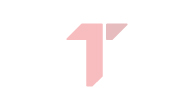Average bribe in Serbia is €74: Corruption worst in healthcare, what other professions are affected
Generally speaking citizens condemn corruption in healthcare, and as many as 70 percent agree that bribes and corruption are the open wound of our healthcare. Nearly two-thirds of citizens - 63 percent, believe that giving drinks, coffee or candy to doctors or nurses is not a bribe - according to a survey within the project Prevention and Fight against Corruption
The average amount of bribes given by Serbian citizens last year was 74 euros, while Serbians see doctors and police officers as those professions most susceptible to corrupt practices with government officials and customs officers behind them, according to a study done under the Prevention and Fight against Corruption project, funded by the EU.
A survey conducted last year found that 71 percent of citizens still consider political parties as corrupt, while 63 percent hold that position regarding employees in judicial institutions, daily Politika reports.
"Generally speaking citizens condemn corruption in healthcare, and as many as 70 percent agree that bribes and corruption are an open wound the in our healthcare. Nearly two-thirds of citizens - 63 percent, believe that drinks, coffee or candy given to doctors or nurses are not a bribe," the study found.
According to respondents, the most corrupt among healthcare workers are doctors, while RFZO (health insurance fund) workers come second, the survey added.
When it comes to education, one in three respondents believe that professors in universities and higher schools are corrupt, while 29 percent of those surveyed believe that there is quite or a lot of corruption among employees of the Ministry of Education, which, according to Politika, represents an improvement compared to a survey conducted in 2015.
The number of citizens who have indirectly experienced corruption has increased from 20 percent, which is how many reported this in the 2015 survey, to 25 percent in the latest survey within the Prevention and Fight against Corruption project.
When it comes to direct experiences with corruption, that percentage rose from 11 percent in 2015 to 11 percent in the 2018 survey, Politika reports.
(Telegraf.rs/ Politika)

